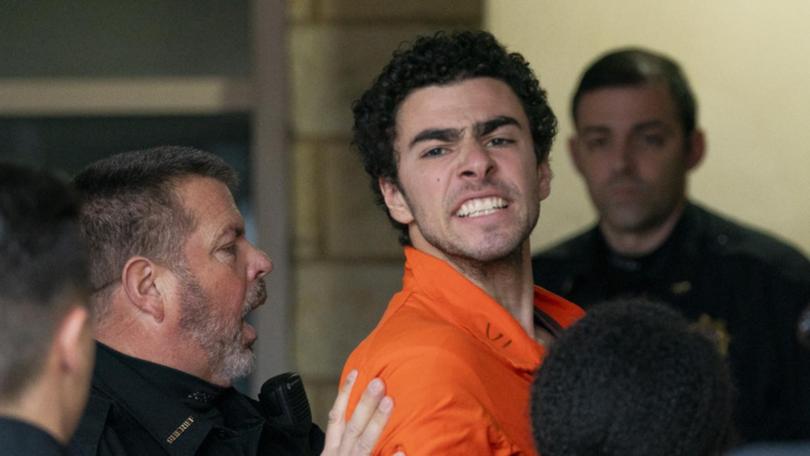Luigi Mangione: UnitedHealth says suspect in CEO Brian Thompson murder not a customer
UnitedHealth says Luigi Mangione, the man accused of shooting dead its CEO, was not one of its customers.

The suspect in the murder of UnitedHealth Group executive Brian Thompson was not a customer of the health insurer, the company says.
Ivy League-educated Luigi Mangione was charged with murder on Monday for the killing of Thompson in a brazen shooting outside a Manhattan hotel before an industry conference, following a five-day manhunt.
In a New York Times opinion piece on Friday, UnitedHealth CEO Andrew Witty mourned the killing of Thompson and said he understood public frustrations with the “flawed” US healthcare system.
Sign up to The Nightly's newsletters.
Get the first look at the digital newspaper, curated daily stories and breaking headlines delivered to your inbox.
By continuing you agree to our Terms and Privacy Policy.“No one would design a system like the one we have. And no one did. It’s a patchwork built over decades,” Witty wrote.
The killing has ignited an outpouring of anger from Americans struggling to receive and pay for medical care and has called fresh attention to deepening resentment over health coverage.
Witty said he and his colleagues were “struggling to make sense of this unconscionable act and the vitriol that has been directed at our colleagues who have been barraged by threats.”
Recent data showed that patients are now even more likely to have their claims denied, pay more for premiums and medical visits, and face unexpected costs for care they thought was covered by their health plan.
“Health care is both intensely personal and very complicated, and the reasons behind coverage decisions are not well understood,” Witty said.
“We share some of the responsibility for that. Together with employers, governments and others who pay for care, we need to improve how we explain what insurance covers and how decisions are made.”
Insurers say they work to negotiate down increased fees from doctors and hospitals, as well as costly prescription drugs and medical devices.
The New York Times reported that an internal New York City Police report analysing a document found on Mangione when he was arrested concluded that he viewed the killing as a justified response to what he believed to be corruption in the healthcare industry.
